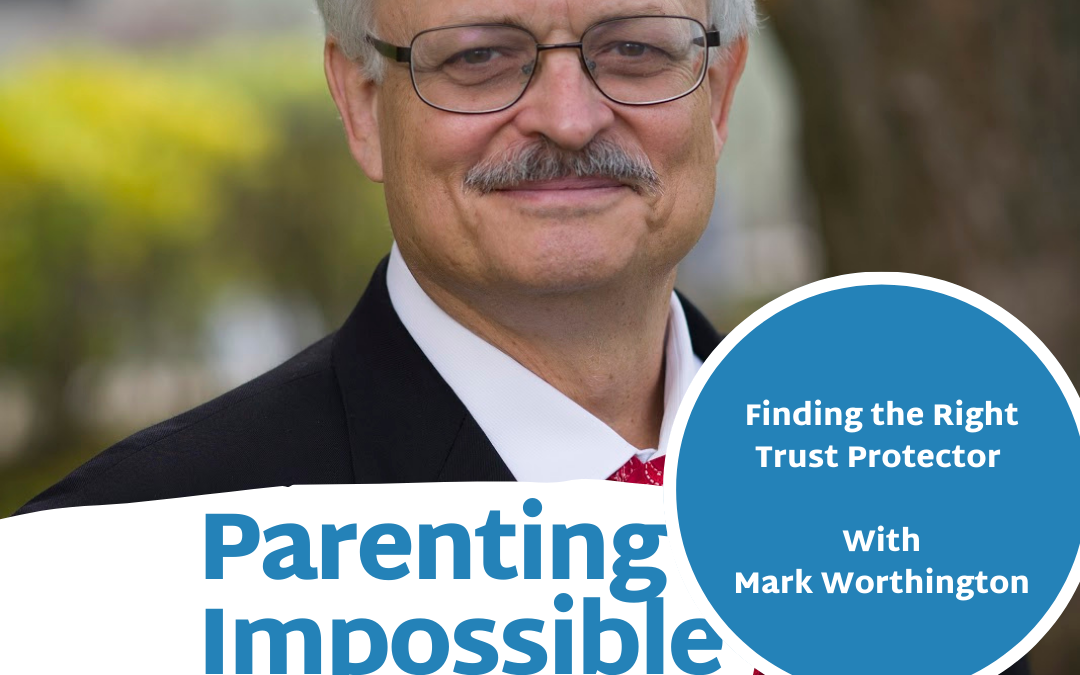Mark Worthington joins Parenting Impossible to share his insight about Trust Protectors and their role with Special Needs Trusts. A Trust Protector acts as a supervisor or watchdog to ensure the security of a trust, in part by observing the Trustee’s actions within the financial account. Often, families do not want to burden a single person with the role of Trustee, but they also know that having a Co-trustee can make the situation tense or complicated.
Selecting a Trust Protector is the most effective in these three situations:
- When you need someone to act as a go-between for the Beneficiary who has a disability and the Trustee
- When you need to review, supervise, and oversee the Trust’s accounts
- When you need to remove and/or replace a Trustee
A Trust Protector oversees the financial decisions and ensures that the relationship between the Trustee and the Beneficiary is successful at all times, removing the Trustee if necessary.
Because of the nature of this supervisory relationship, the Trust Protector can wield a lot of power over the Trust if you are not careful. One of the most dangerous threats to their financial stability that a Beneficiary can face is for their Trust Protector to have broad power over their Trust account. Given too much power, a Trust Protector could interfere with the funds in the trust or strain the relationship between the Trustee and Beneficiary.
Special Needs Trusts can be difficult to understand and manage, and these challenges are part of the reason that Annette and Mark founded the Special Needs Law Group of Massachusetts. Banks and trust organizations are often unwilling to take on a Special Needs Trust because these trusts are too tedious to maintain or are too small monetarily.
Learn more about bringing on a Trust Protector in this episode below.
Annette Hines has been practicing in the areas of Special Needs, Elder Law, and Estate Planning for more than 20 years. Ms. Hines brings personal experience with special needs to her practice and podcasts as the mother of two daughters, one of whom passed away from Mitochondrial disease in November 2013. This deep, personal understanding of special needs fuels her passion for quality special needs planning and drives her dedication to help others within the special needs community.

